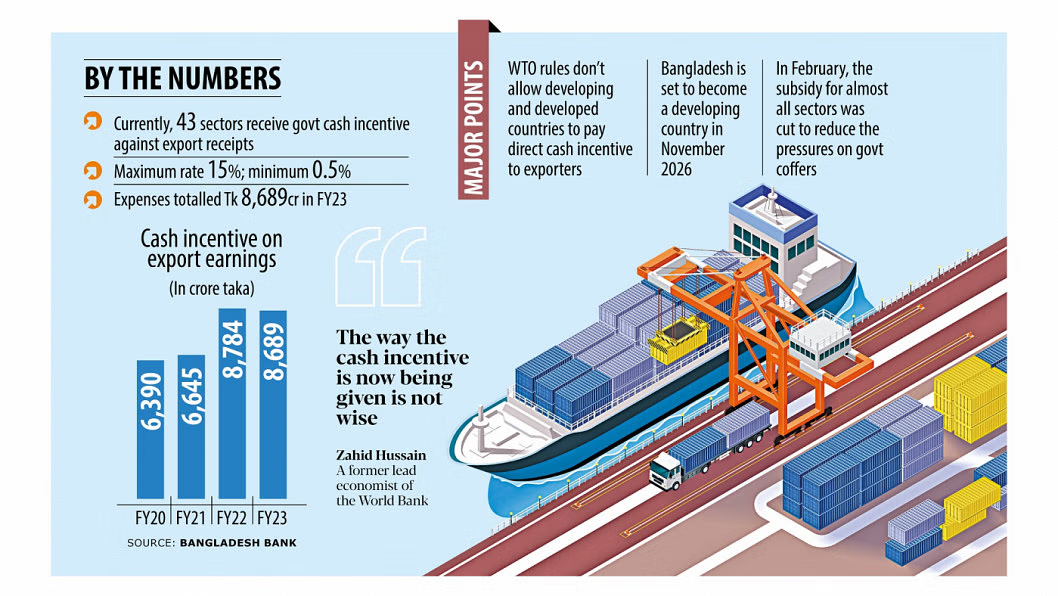Shipment of readymade garments from Bangladesh to Russia and the payments from the buyers are declining day by day as the country’s war against Ukraine rages.
As a result, as high as 150 local apparel exporters are passing days in uncertainty as Bangladesh risks losing a key emerging market if the conflict persists and it would dampen the country’s efforts to diversify exports.
Bilateral trade between Bangladesh and Russia is worth more than $1 billion and is growing.
But many garment suppliers are not receiving export receipts as several Russian banks have been banned from using SWIFT, the global payments messaging network.
It came after the European Union said it was excluding seven Russian banks from the SWIFT (Society for Worldwide Interbank Financial Telecommunication). The US has recently announced sanctions on four large Russian banks.
Many exporters have either already produced the finished items for the Russian buyers or sent the goods to the Chattogram port to be shipped. But the shipping lines are not taking the goods on board because of the sanctions related to the war.
One of the indirect victims of the war is a Gazipur-based garment exporter. The owner, who talked to The Daily Star on condition of anonymity, said his factory received $5 million worth of orders from Russia in November.
Accordingly, he shipped men’s and women’s tops, casual shirts and other woven garment items worth $5.80 lakh. However, the export documents were sent back to him from Hungary last week because of the SWIFT ban.
Garment items amounting to $3 lakh are lying at the Chattogram port as no shipping company is willing to transport them to the destination.
Another 11 lakh pieces of garment items are waiting to be manufactured as per the order. But there is uncertainty as the buyer is asking the supplier to delay the shipment.
For the exporter, the Russian-Ukraine war has emerged as a major blow. And it came at a time when his business was recovering from the pandemic-induced slowdown on the back of the increased volume of orders from international retailers and brands with the receding of coronavirus cases.
In order to manufacture the finished goods, he has already purchased raw materials and other accessories from China valued $2 million with the money from the back-to-back letters of credit.
So far, $3 million out of a total $5 million of the order has been badly impacted because of the SWIFT ban, he said.
As he will not receive payments since he has not been able to ship the goods, the bank will turn his loan into forced loans as he is losing the capacity to repay.
“My Russian buyer is only saying he is looking for an alternative solution to make the payment. We are also eagerly waiting for the payment,” said the exporter.
The businessman shipped garment items worth $70 million last year and employs more than 2,700 workers.
A payment of $2.5 million for a consignment of garment exports has become uncertain for Rajiv Chowdhury, managing director of Young 4 Ever Textile as well. He, however, received $2 lakh in payments after a long negotiation for another consignment.
“I want to do business with Russia as this is a growing market for Bangladesh. But I will not export to Russia anymore under the current situation,” he said.
Another major challenge facing local suppliers is no international courier service companies are taking documents to Russia.
DHL, FedEx and United Parcel Service have suspended shipments into Russia amid the country’s invasion of Ukraine.
“So, both shipments and payments are getting difficult as courier services are not going there,” said Mohammad Hatem, executive president of the Bangladesh Knitwear Manufacturers and Exporters Association.
He, however, says the export of garments through third countries is not facing any difficulty.
Some 20 per cent out of nearly $600 million garment items shipped from Bangladesh directly goes to Russia and the rest through third countries such as Turkey, Poland, Hong Kong and some other European nations.
On Wednesday, the Bangladesh Bank also advised garment exporters to do business with Russia through third countries and transact with the Russian banks that are not facing the SWIFT ban, according to Hatem.
Hatem recommended local exporters send scanned documents to buyers until international courier companies resume carrying them to Russia.
“Russian buyers should accept the scanned documents of the consignments so business between the two countries can continue.”
Some Russian buyers are asking for using the Chinese alternative to SWIFT, he said. “If it starts working, the export might not be affected.”
Another good sign is that local exporters send goods to Russia through the ports of Finland, Hamburg and Belarus. “The sea routes are still open for local exporters,” Hatem said.
The Bangladesh Garment Manufacturers and Exporters Association has opened a desk to help all types of apparel exporters inform it about orders received, executed and payments unpaid.
In the July-January period of the current fiscal year, suppliers sent garment items worth $415.47 million to Russia, registering a 36.47 per cent year-on-year growth, data from the Export Promotion Bureau showed.
In the last fiscal year, Bangladesh exported apparel items worth $593.66 million. Of the sum, $373.25 million was for knitwear products and $220.41 million for woven items.
















